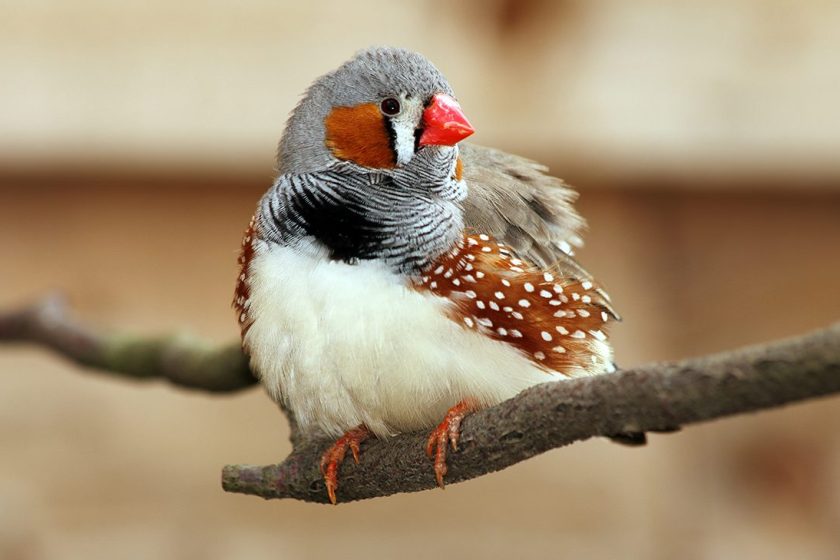
That performer’s feeling of elation over nailing the right note is for the birds.
Just as humans get a dose of released dopamine after completing a task that gives satisfaction, like hitting an athlete’s game-winning shot or a musician jamming in sync with the rest of the band, a new study suggests the same thing happens for some birds when they sing.
Led by Cornell University’s Vikram Gadagkar, a team of neurobiologists noticed higher levels of dopamine, the chemical that controls the brain’s pleasure center, in zebra finches when they heard recordings of their songs in-tune. However, when the scientists added the wrong notes to tunes warbled by the birds, those dopamine levels dropped.
While there is nothing intrinsically good or bad about any musical note, the brain learns to expect a specific sound via historical indicators. As with most behaviors, this is determined by matching the performance to expectation through trial and error. Gadagkar and the research team, whose findings were published by the American Association for the Advancement of Science, believes zebra finches work in this same way. In fact, when the birds heard the same song without the wrong notes, the same neurons that were activated. That suggests the finches expected to hear the mistake again.
Given this pattern of behavior, zebra finches may have the potential to remember their past musical errors and adjust accordingly. The theory may explain how young finches can mimic songs with such precision. Gadagkar’s findings could be used to examine other species’ communication and how their brains process them.
Read the full study here. Listen to an example of a zebra finch song above.
—RealClearLife Staff
This article was featured in the InsideHook newsletter. Sign up now.